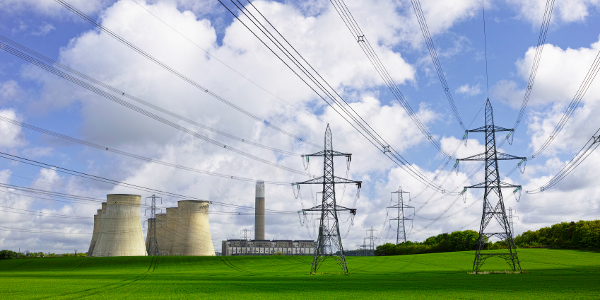ii view: National Grid increases chunky dividend
Covid-19 is hurting, but investors are liking this 5% dividend yield in a world of low interest rates.
12th November 2020 12:02
by Keith Bowman from interactive investor
Covid-19 is hurting, but investors are liking this 5% dividend yield in a world of low interest rates.

First-half results to 30 September
- Underlying operating profit down 12% to £1.15 billion
- Underlying earnings per share down 14% to 17.2p
- Interim dividend up 2.6% to 17p per share
Chief executive John Pettigrew said:
"In the first half of this year we delivered strong operational performance whilst managing the impact of Covid-19 costs on our financial results. We have continued to ensure safe, reliable networks and have delivered on our investment programme through the pandemic. With the launch of our Responsible Business Charter, we have underlined our commitment to our environmental goals, whilst supporting employees and communities across our jurisdictions.
"Looking ahead, the group is well positioned to manage the ongoing Covid-19 uncertainty, and our full-year financial guidance is unchanged. Our focus remains on agreeing regulatory settlements, and to help shape the energy transition as we look to enable decarbonisation of power, transport and heat."
ii round-up:
UK and US energy company National Grid (LSE:NG.) reported falling underlying half-year profits as reduced commercial consumption and increased costs under the Covid-19 pandemic both impacted.
Adjusted profit fell by 12% to £1.15 billion, with the company maintaining its previous £400 million Covid impact estimate to current full-year profits.
National Grid shares started lower on these results before recovering in a falling market to trade higher by lunchtime. That leaves them a little changed on the year-to-date. Shares of Scotland-headquartered SSE (LSE:SSE) are down by 4% in 2020, while British Gas owner Centrica (LSE:CNA) has more than halved in value.
However, no deterioration in National Grid's Covid-related hit estimate left management’s expectations for current full-year profit unchanged, with its existing dividend policy also maintained. The interim payment was increased to 17p per share from last year’s 16.57p, in line with its UK inflation RPI policy of March 2013.
Pandemic-related costs such as increased US customer bad debt provisions are expected to be largely recoverable over future years. Record low UK electricity demand was seen earlier in the year. Similarly, under lockdown, US gas consumption fell by 8% between mid-March and the end of April.
During the period in the UK, it submitted a response to Ofgem's draft proposals. The industry regulator's final determination is expected soon. In the US, the company progressed a way forward on addressing gas constraints in downstate New York.
Again, and in line with its earlier year guidance, full-year cashflow is expected to reduce by up to £1 billion given lower revenues from reduced consumption, while net debt is forecast to increase by £1.5 billion in the second half to £31.6 billion.
ii view:
In conjunction with the regulatory environment, National Grid is always trying to achieve the correct balance between customers - in its case other utility companies - its own finances, infrastructure investment and shareholder returns.
Its US operations, although adding geographical diversity, also bring it into regular negotiations with US authorities. Discussions with the UK regulator regarding the pending new five-year period from April 2021 remain ongoing. Now, along with its usual battle against weather and storm disruption, the pandemic has curtailed industrial demand and increased bad-debt provisions.
For investors, Covid-19 has created headwinds. Negotiations with regulators are a mainstay and constant concern, with a change of US government possibly seeing American regulators upping their demands. That said, life under the pandemic has become challenging for many different sectors, from high street retailers to shop property owners and the travel industry. As such, and with its favourable dividend policy still in place, a historic and estimated dividend yield in the region of 5% remains highly attractive in today’s ultra-low interest rate environment.
Positives:
- Attractive dividend payment (not guaranteed)
- Pursuing cost efficiency programmes in both the UK and US
Negatives:
- Covid-19 raising costs and reducing consumption
- Net debt expected to rise by £1.5 billion to £31.6 billion
The average rating of stock market analysts:
Buy
These articles are provided for information purposes only. Occasionally, an opinion about whether to buy or sell a specific investment may be provided by third parties. The content is not intended to be a personal recommendation to buy or sell any financial instrument or product, or to adopt any investment strategy as it is not provided based on an assessment of your investing knowledge and experience, your financial situation or your investment objectives. The value of your investments, and the income derived from them, may go down as well as up. You may not get back all the money that you invest. The investments referred to in this article may not be suitable for all investors, and if in doubt, an investor should seek advice from a qualified investment adviser.
Full performance can be found on the company or index summary page on the interactive investor website. Simply click on the company's or index name highlighted in the article.